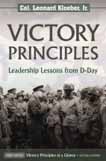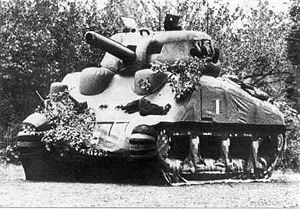Archive for the ‘operation fortitude’ tag
Operation Fortitude: The Art of Deception
The famous Chinese military strategist, Sun Tzu is credited with saying that “All war is deception,” meaning that a skillful general will deceive his opponent so that he can increase his odds of success. During World War II, Operation Fortitude in support of the Allied invasion of France was one of the best examples of the use of deception to support military operations at any time in history. The intent of the Fortitude Plan was to convince the Germans that the Allies would most likely strike at the Pas de Calais on the expected cross-Channel attack so that the German army would concentrate a significant portion of their forces away from the Normandy area. At the same time, another part of the Fortitude plan threatened a strike in Norway with the intent to also cause them to have to defend that area as well. When the landings occurred in Normandy on June 6th the German High Command considered this to be a diversion. They held a significant portion of their best armored units in reserve believing that the real attack would come later; but in fact, Normandy was the main assault. As the Supreme Commander, General Eisenhower understood exactly what Sun Tzu had in mind.
The deception was partly predicated on the German belief that the Pas de Calais was the most likely place to mount a cross-Channel attack because it was the shortest route from England. This would shorten the Allied logistical lines which would maximize air support from aircraft based in southern England, as well as maximize the sealift capability by minimizing the time required for a ship to deliver its cargo and return for another trip. Allied intelligence realized this German pre-disposition, so the Fortitude plan was created to support their thinking. A fictitious army complete with dummy tanks, trucks, and tents was set up in southern England under the command of American General George S. Patton. Patton was considered perhaps the best Allied field commander, and so this added to the deception; however, Patton was in actuality being temporally “benched” by Eisenhower for his misconduct in Sicily where he slapped some soldiers in field hospitals who were suffering from “battle fatigue.” While Patton’s stated intentions were to shame the soldiers into returning to their units and rejoin the fight, the press reported the incident which outraged politicians on the home front. So to defuse the situation while still keeping Patton available for future operations, Eisenhower assigned him to command the phantom First US Army Group. German agents soon reported his presence which helped to support the deception story.
Additionally, the Allies conducted routine, but false, radio traffic which they knew would be intercepted by German intelligence. This also created the impression that the First US Army Group was active. They also periodically moved some of the mocked up tanks and trucks, and created tracks in the fields to make it look as if they were moved so that if the Germans flew aerial reconnaissance, they would believe that there was in fact a real army on the ground. However, because the German Luftwaffe was under constant attack by the Allied air forces, they likely did not overfly the area. Nevertheless, the British intelligence had also turned some of the German agents into double agents, so their stories of Allied army activities which they reported back to their German handlers seemed all the more real and part of a coherent story.
The Fortitude pan was successful in achieving is intended result s. The old military maxim held true: he who defends everywhere, defends nowhere. Although the landings in Normandy were strongly contested by the German defenders from fortified positions, the Allies succeeded in part because the bulk of the German armored units were not committed to a strong counter attack sooner. By the time the Germans realized that this was the main assault, the Allies had already obtained a strong foothold on the Continent, and it was too late to dislodge them. Sun Tzu could have predicted the result.

